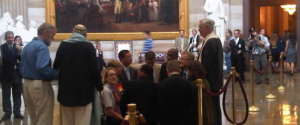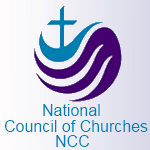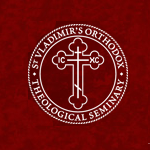
Deprecated: trim(): Passing null to parameter #1 ($string) of type string is deprecated in /home/aoiusa/public_html/wp-content/plugins/sexybookmarks/public.php on line 388
Deprecated: trim(): Passing null to parameter #1 ($string) of type string is deprecated in /home/aoiusa/public_html/wp-content/plugins/sexybookmarks/public.php on line 394
Deprecated: trim(): Passing null to parameter #1 ($string) of type string is deprecated in /home/aoiusa/public_html/wp-content/plugins/sexybookmarks/public.php on line 400
Challenging the Progressive Captivity of Orthodoxy in America
 The St. Vladimir’s Seminary Conference on Poverty held during the last weekend of May, 2013 may portend a loosening of the Progressive grip on Orthodox thinking about morality and culture in America. Let’s face it: the Orthodox contribution to American cultural discourse has been meager, often swept along by shallow bromides that conform to popular notions of the common good rather than substantive engagement of the moral tradition within the dominant cultural ethos.
The St. Vladimir’s Seminary Conference on Poverty held during the last weekend of May, 2013 may portend a loosening of the Progressive grip on Orthodox thinking about morality and culture in America. Let’s face it: the Orthodox contribution to American cultural discourse has been meager, often swept along by shallow bromides that conform to popular notions of the common good rather than substantive engagement of the moral tradition within the dominant cultural ethos.
The Progressive Captivity leads to all sorts of mischief — from weakening the teachings of the Orthodox moral tradition (see: A Patriarch who ‘Generally Speaking, Respects Human Life’), to lending the imprimatur of Orthodox moral authority to marginal groups like the National Council of Churches (see: NCC EXIT POLL: Why One Orthodox Church Left the National Council of Churches).
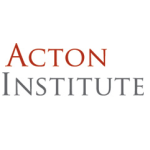 St. Vladimir’s Seminary, to their credit (and to the consternation of some faculty and ecclesiastical higher-ups), challenged Progressive Orthodoxy and the easy platitudes that characterize so much Orthodox reflection on cultural questions. The invitation to the Acton Institute (Acton is known for its rigorous thinking on economics and culture) was sure to raise hackles. It did — but hackles need to be raised.
St. Vladimir’s Seminary, to their credit (and to the consternation of some faculty and ecclesiastical higher-ups), challenged Progressive Orthodoxy and the easy platitudes that characterize so much Orthodox reflection on cultural questions. The invitation to the Acton Institute (Acton is known for its rigorous thinking on economics and culture) was sure to raise hackles. It did — but hackles need to be raised.
Progressive ideology is seductive. We must care for the poor the scriptures teach and often Progressive thinkers (including Orthodox Progressives) wrap their ideas in the language of moral tradition in order to present them as cultural imperatives and bypass critical engagement with the ideas themselves. It’s a crude but effective technique. Who can argue against helping the poor?
Yet many of the policies that deal with poverty at home and the developing world are predicated on making the donor feel good about his contribution rather than concern for the poor themselves. As a result the policies fail. Instead, policies that address poverty have to both draw from and affirm the inherent dignity of the person.
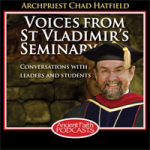 Human dignity is the ground of human flourishing. Remove the barriers that allow people to flourish and the poor themselves will establish systems and markets by which their poverty can be alleviated. One only has to look to S. Korea, or Malaysia, or other countries to see how this works.
Human dignity is the ground of human flourishing. Remove the barriers that allow people to flourish and the poor themselves will establish systems and markets by which their poverty can be alleviated. One only has to look to S. Korea, or Malaysia, or other countries to see how this works.
How do we know that this is true? We examine the ideas. We listen to the rationale. Most important we test results. Listen to the audio below and see for yourself if the ideas are 1) compelling, 2) confirmed by real world examples, and 3) economically, morally and theologically sound.
Audio courtesy of Ancient Faith Radio: Voices From St Vladimir’s Seminary

Conference background
Discovery Institute Senior Fellow and noted author Jay Richards was the keynote speaker. Co-hosted by the Acton Institute, the event featured speakers from diverse backgrounds and disciplines who offered fresh ideas for Orthodox Christians on how to effectively minister to the poor. Other speakers and panelists included Dr. Antionios Kiriopoulos, St. Vlad’s alumnus and officer in the National Council of Churches; Seminary Trustee Dr. Nicholas Pandelidis; Fr Phililp LeMaster, Dean of Social Sciences and Religion at McMurry University in Abilene, TX; Michael Miller of the Poverty Cure at Acton; John Couretas of Acton; and director of FOCUS North America in Pittsburgh, Subdeacon Paul Abernathy.

Introduction — Welcome by SVS Chancellor Fr. Chad Hatfield
Fr. Chad Hatfield explains the purpose of the conference and how the “ugliness” of Christian charity in the Third World and developing countries needs to be reexamined and addressed. The SVS conferences are designed to examine different perspectives on thorny issues. Fr. Hatfield explained that he finds it “perplexing and puzzling” that people objected to the conference and affirmed that SVS “believes in free speech.”

Session #1 — KEYNOTE: Jay Richards
Jay Richards, Ph.D., is a Senior Fellow of the Discovery Institute where he directs the Center on Wealth, Poverty and Morality, and is a Visiting Scholar at the Institute for Faith, Work & Economics. Most recently he is the co-author with James Robison of the best-selling Indivisible: Restoring Faith, Family, and Freedom Before It’s Too Late.
Jay Richards discusses the abject failure of poverty programs from the Great Society forward and asks how do we create the prosperity that alleviates poverty? What is the difference between localized poverty and widespread poverty?

Session #2 — Rev. Fr. Philip LeMasters, Ph.D.
The Rev. Fr. Philip LeMasters, Ph.D., is the pastor of St. Luke Orthodox Church. He also serves as Dean of the School of Social Sciences and Religion, Professor of Religion, and Director of the Honors Program at McMurry University. In addition, Fr. Philip is the Corporate Secretary of the Board of Trustees of St. Vladimir’s Orthodox Theological Seminary in New York.
Fr. LeMasters discusses “Fasting and the Poor.” Giving to the poor imitates God’s generosity to mankind. Giving to the poor by the rich (those who have a sufficient amount of the world’s goods) requires to the rich to give up things they don’t need. The moral dimension of taking care of the poor.

Session #3 — Michael Matheson Miller
Michael Matheson Miller is Research Fellow and Director of Acton Media at the Acton Institute. He is the Director and Host of the PovertyCure DVD Series and has appeared in various video curricula including Doing the Right Thing, Effective Stewardship, and the Birth of Freedom. Visit the Michael Matheson Miller website.
Michael Matheson Miller discusses re-framing the discussion about poverty around the centrality of the human person created in the image of God. Too often our first response to poverty is to ask what we can do, but the better is question is “How can people in the developing world create prosperity for the families and communities?” Miller develops this theme throughout the talk. One warning: At about 3 minutes in Miller showed a trailer for the PovertyCure DVD Series and you will only be able to hear the audio, so skip forward to around 7 min or so for the rest of the lecture.

Session #4 — What is Social Justice in an Orthodox Christian Context?
Four speakers with Q & A. Dr. Antonios Kiriopoulos, National Council of Churches; Dr. Nicholas Pandelidis, Board of Trustees, St. Vladimir’s Seminary; John Couretas, Acton Institute, Director of Communications, Executive Editor, Religion & Liberty Quarterly; Subdeacon Paul Abernathy, local director of FOCUS North America, Pittsburgh, Pennsylvania.
Public discussion begins at: 38:57.



